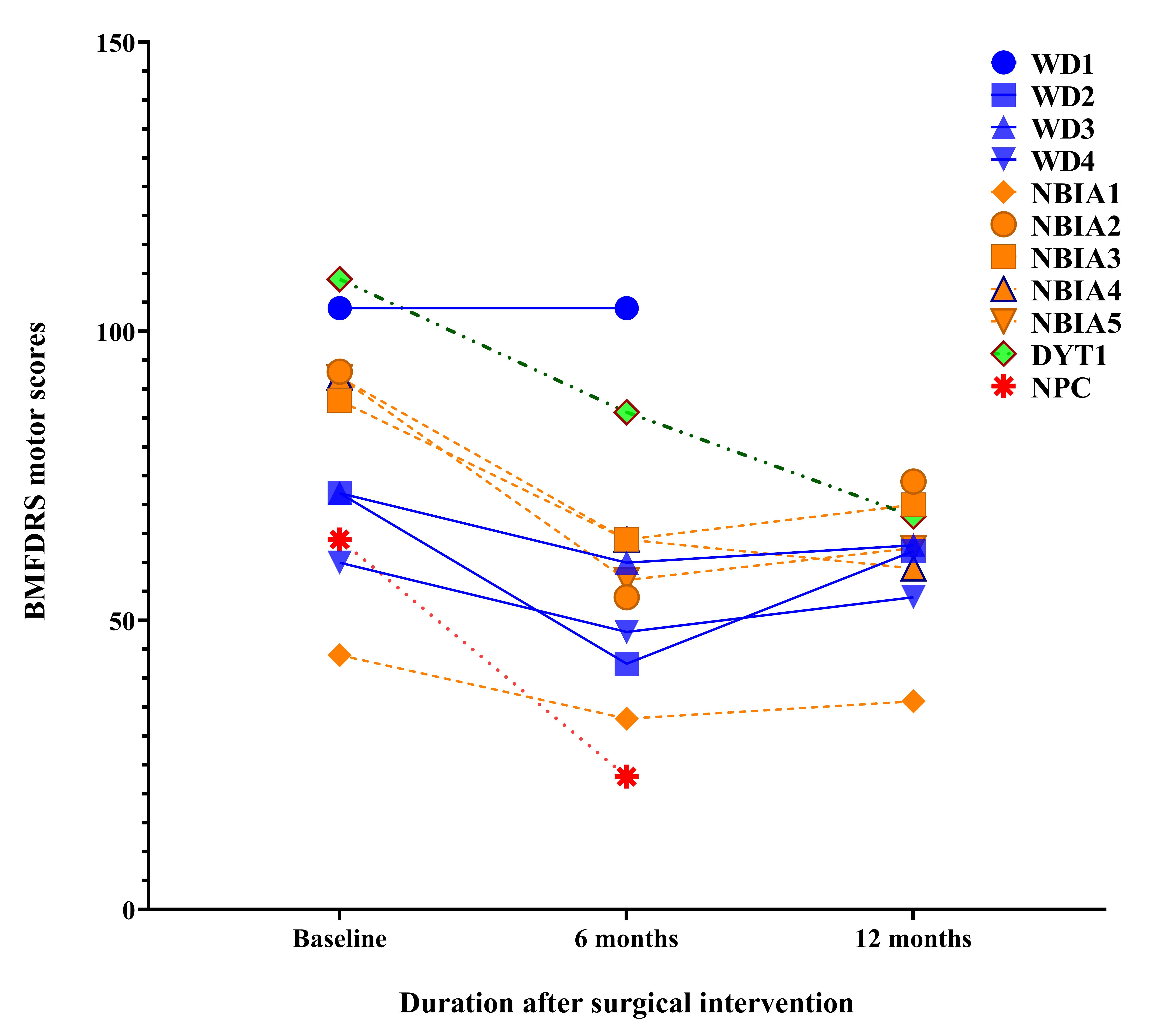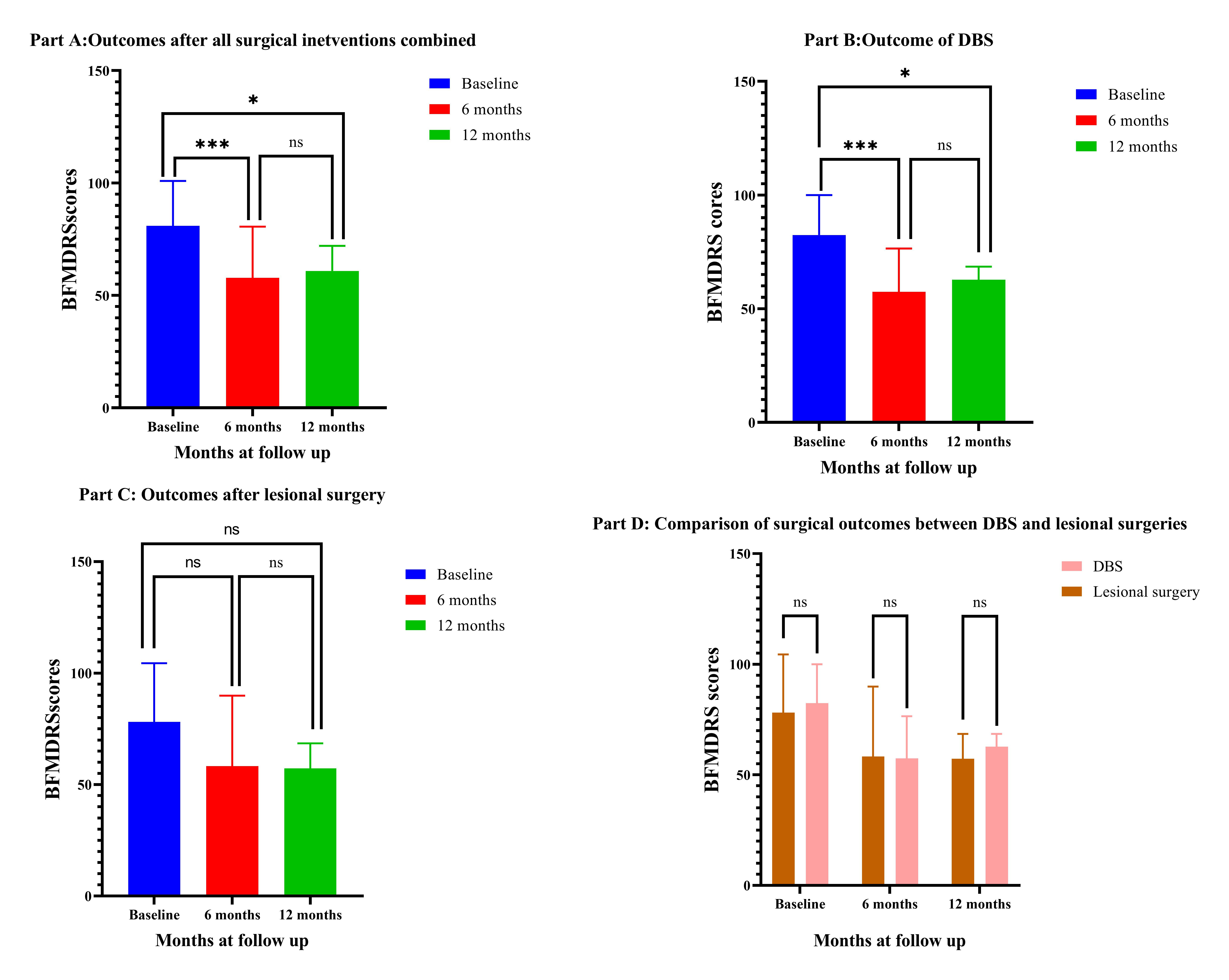Category: Rare Genetic and Metabolic Diseases
Objective: To study the outcome of functional neurosurgery among patients with Rare movement disorders (RMDs).
Background: RMDs throw remarkable challenges to their appropriate management particularly when they are medically refractory.
Method: Retrospective chart-review from 2006 to 2021 of patients with RMDs who underwent either Deep brain Stimulation (DBS) or lesional surgeries in the department of Neurology and Neurosurgery at a tertiary care center.
Results: Seventeen patients were included. Generalized dystonia (11 patients,64.7%) and tremor (5 patients,29.4%) were the most common indication for surgery whereas, Wilson’s disease (8 patients,47.1%) and Neurodegeneration with brain iron accumulation (5 patients,29.4%) were the most common etiology. Sixteen patients (94.1%) had objective clinical improvement. Significant improvement was noted in the dystonia motor scores both at 6-months and 12-months follow-up (n=11, p-value of <0.01and 0.01 respectively) [Figure1]. Comparison between DBS and lesional surgery showed no significant difference in the outcomes (p=0.95 at 6-months and p=0.53 at 12-months), with slight worsening of scores in the DBS arm at 12-months [Figure2]. Among five patients of refractory tremor with Wilson’s disease, there was remarkable improvement in the tremor scores by 85.0±7.8% at the last follow-up. Speech impairment was the main complication observed with most of the other adverse events either transient or reversible.
Conclusion: Surgical options should be contemplated among patients with disabling medically refractory RMDs irrespective of the etiology. Key to success lies in appropriate patient selection. In situations when DBS is not feasible, lesional surgeries can offer an excellent alternative with comparable efficacy and safety.
To cite this abstract in AMA style:
VV. Holla, D. Dhar, N. Kamble, R. Yadav, D. Srinivas, PK. Pal. Surgical outcomes in Rare Movement Disorders: A report of seventeen patients from India [abstract]. Mov Disord. 2022; 37 (suppl 2). https://www.mdsabstracts.org/abstract/surgical-outcomes-in-rare-movement-disorders-a-report-of-seventeen-patients-from-india/. Accessed February 3, 2026.« Back to 2022 International Congress
MDS Abstracts - https://www.mdsabstracts.org/abstract/surgical-outcomes-in-rare-movement-disorders-a-report-of-seventeen-patients-from-india/


